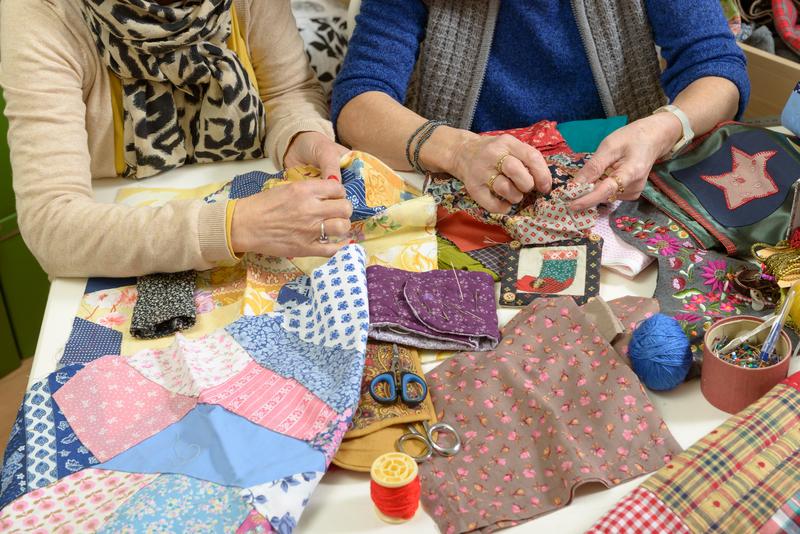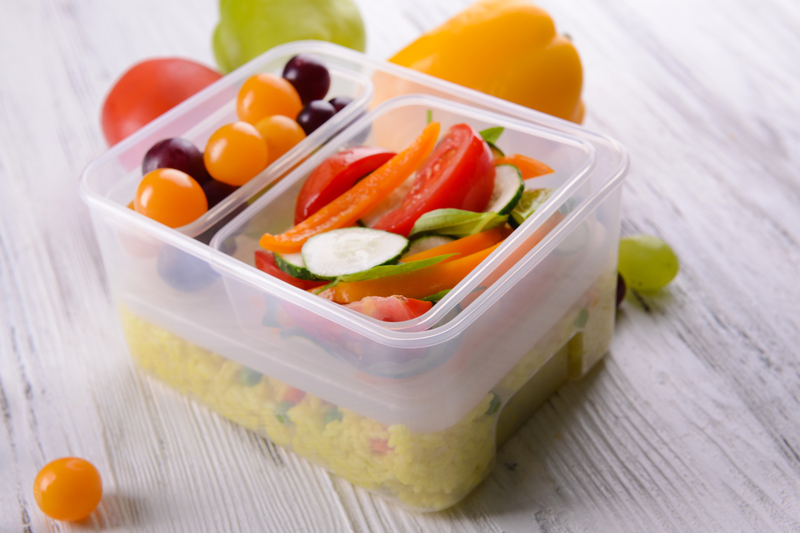Simple Steps to Achieve a Plastic-Free Lifestyle
Are you looking for actionable ways to move towards a plastic-free lifestyle? In an age where plastic pollution is a rampant environmental issue, making the switch to a plastic-free life is a powerful act of sustainability. Whether you're just starting or already on your journey, you can take meaningful actions that have a positive impact on the planet and your wellbeing. This in-depth guide will offer you tried and tested simple steps to reduce plastic consumption, suggest practical alternatives, and help you achieve a plastic-free home with confidence.
Why Embrace a Plastic-Free Lifestyle?
Every year, millions of tons of plastic end up in our oceans, harming wildlife and contaminating our food chain. By transitioning to a plastic-free lifestyle, you contribute to protecting the environment, supporting sustainable businesses, and creating a healthier, toxin-free home for yourself and your family. A commitment to living plastic-free also inspires others, amplifying the positive effect within your community.
The Benefits of Reducing Plastic in Your Daily Life
- Reduces exposure to harmful toxins like BPA
- Protects marine life and ecosystems
- Encourages the growth of sustainable markets
- Promotes mindful consumption and minimalism
- Decreases landfill waste and pollution

Getting Started: Assess Your Plastic Consumption
Before making changes, the first step is awareness. Take note of the plastic items you use daily--for instance, packaging, containers, bottles, bags, and single-use products. A detailed audit will help you identify the biggest sources of plastic in your life and show you where you can have the most significant impact.
- Track your plastic waste for a week (keep a separate bin for plastics).
- List commonly used single-use plastic items.
- Note items that can be replaced with reusable or compostable alternatives.
Simple and Effective Strategies to Go Plastic-Free
1. Adopt Reusable Shopping Bags
Plastic bags are one of the most prevalent sources of pollution. Making the switch to reusable bags--be it cotton, jute, or sturdy synthetics--can prevent hundreds of disposable bags from entering landfills over your lifetime.
- Keep a reusable bag in your car, purse, or backpack at all times.
- Opt for bags that can be easily washed and reused for years.
- Say no to plastic bags for every purchase, including produce.
2. Say Goodbye to Single-Use Plastics
A plastic-free lifestyle is easiest when you replace common single-use items with long-lasting alternatives, such as:
- Stainless steel and glass straws to replace plastic ones
- Bamboo or metal cutlery instead of disposable plastic forks and spoons
- Beeswax wraps or silicone lids in place of plastic wrap
- Compostable plates, bowls, and cups for events and picnics
These swaps may seem minor, but when compounded, they significantly reduce plastic waste.
3. Choose Plastic-Free Food Storage Options
Food storage is a major source of household plastic. Opt for glass, stainless steel, or ceramic containers to store leftovers, snacks, and grains. Not only are these alternatives more durable, but they also do not leach chemicals into your food.
- Reuse glass jars for bulk items or meal prep.
- Explore silicone bags as a flexible, long-lasting storage solution.
- Purchase pantry staples in bulk to minimize packaging.
4. Switch to Plastic-Free Personal Care Products
Most conventional beauty products involve plastic packaging and microplastics. Transition to zero-waste personal care by choosing items from sustainable brands that offer compostable or refillable packaging.
- Use bar soap and shampoo bars instead of bottled liquids
- Try wooden toothbrushes and natural fiber floss
- Seek out deodorants in cardboard tubes or glass jars
- Avoid cosmetics containing microbeads
5. Rethink Your Cleaning Routine
Many cleaning products are packaged in single-use plastics. Reduce your impact by buying in bulk, using refill stations, or making homemade cleaners using simple ingredients like vinegar and baking soda.
- Invest in reusable cleaning cloths instead of synthetic wipes
- Look for dish brushes with wooden handles
- Switch to laundry detergent sheets or powder sold in cardboard boxes
Smart Shopping Tips for a Plastic-Free Home
Buy in Bulk
Bulk stores are goldmines for anyone aiming for a plastic-free lifestyle. Purchasing staples like rice, pasta, nuts, and cereals in bulk reduces the amount of plastic packaging used and often offers savings.
- Bring your own jars, cloth bags, or containers
- Support stores that offer refills and package-free sections
Select Products with Minimal or Compostable Packaging
When you must buy packaged goods, prioritize those with cardboard, paper, or glass packaging. More brands now offer compostable wrappers or returnable bottles as part of their sustainability promises.
Buy Fresh, Local, and Seasonal
Farmers markets and local shops often provide produce without plastic wrapping. Choose fruits and vegetables that are in season and avoid those pre-packed in plastic trays.
- Bring your own reusable produce bags
- Support vendors who use minimal or no packaging
Choose Refill Stations Whenever Possible
Refill stations are an effective way to reduce packaging in your kitchen, bathroom, and even laundry room. Many stores now allow you to refill soaps, detergents, shampoos, and more in your own containers.
Plastic-Free On-the-Go: Sustainable Solutions Beyond Home
Carry a Zero-Waste Kit
Develop the habit of carrying essentials that help you avoid single-use plastics when you're out. This small effort is key to truly achieving a plastic-free lifestyle.
- Refillable water bottle: Stainless steel or glass options work best
- Travel mug or thermos for coffee, tea, or smoothies
- Lightweight bamboo or metal utensil set
- Chic, collapsible shopping bags
- Snack containers for takeaways or leftovers
Think Before You Buy or Receive
Practice mindful consumption. Politely refuse items like free pens, plastic-wrapped snacks, or party favors that add to your plastic footprint. Every small decision contributes to a bigger change.
Plastic-Free Lifestyle in the Workplace and School
Encourage your colleagues and classmates to join you in your mission for plastic reduction. Pack your own lunches in reusable containers, bring your own mug for office coffee, and advocate for sustainable office policies like ordering supplies in bulk or switching to recycled paper products.
- Host a 'Plastic-Free Day' or challenge at your school/workplace
- Start a zero-waste club or green team
- Educate others about the benefits of living plastic-free
Creative Swaps: Innovative Alternatives to Everyday Plastics
The market for plastic-free alternatives is growing every day. Here are some innovative eco-friendly swaps you can try:
- Toothpaste tablets instead of toothpaste tubes
- Refillable deodorant sticks
- Bamboo or metal safety razors
- Biodegradable phone cases and sunglasses
- Compostable trash bags
- Cloth or mesh produce bags for fruits and veggies
Supporting the Plastic-Free Movement
Transitioning to a plastic-free lifestyle is not just a personal journey--it's a collective one. Your choices influence the market and encourage brands to adopt eco-friendly practices.
- Support businesses dedicated to minimal or zero plastic packaging
- Sign petitions and raise awareness about plastic pollution
- Share your journey and inspire others via social media
Every purchase you make is a vote for the kind of world you want to live in.
Overcoming Challenges on the Plastic-Free Journey
Switching to a life without plastic can seem overwhelming. It's important to remember that perfection isn't necessary--every step matters. Here are a few tips to help you stay on track:
- Start slow: Focus on one area at a time, such as your kitchen or bathroom.
- Don't be discouraged by setbacks: The transition will have its challenges.
- Celebrate progress and learn from mistakes.
- Get your family and friends involved for motivation and support.

Frequently Asked Questions About Living Plastic-Free
Is it possible to be completely plastic-free?
While achieving an entirely plastic-free life is challenging due to how ingrained plastics are in modern society, making informed, conscious choices drastically reduces your plastic footprint. The goal is progress, not perfection.
Are plastic alternatives more expensive?
Some sustainable swaps may have a higher upfront cost but end up saving you money in the long run due to their durability and reusability. Buying in bulk or supporting local businesses can also make plastic-free living more affordable.
What about recycling?
While recycling is essential, only a small percentage of plastics are actually recycled. Reducing plastic use and embracing reusable alternatives is far more effective for the planet.
Where can I find plastic-free products?
Many online stores, local farmers markets, and health food shops now offer plastic-free options. A simple search for "plastic-free products near me" can reveal a wealth of choices tailored to your region.
Conclusion: Your Path to a Plastic-Free World
Taking simple steps to achieve a plastic-free lifestyle is within everyone's reach. With each eco-friendly decision, you're not only reducing your carbon footprint and minimizing pollution, but you're also leading by example for those around you. Start today by making mindful choices, trying out some of the practical swaps discussed here, and sharing your plastic-free journey with others.
Remember, every piece of avoided plastic counts. Let your actions speak for a more sustainable, healthier future!
Start Your Plastic-Free Lifestyle Today
- Assess your current plastic usage
- Swap single-use items for reusables
- Choose packaging-free or compostable alternatives
- Inspire others by sharing your experience
Ready to embrace a plastic-free lifestyle? Your small changes add up to a huge difference for the planet!